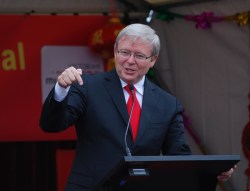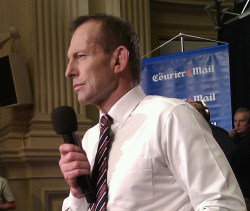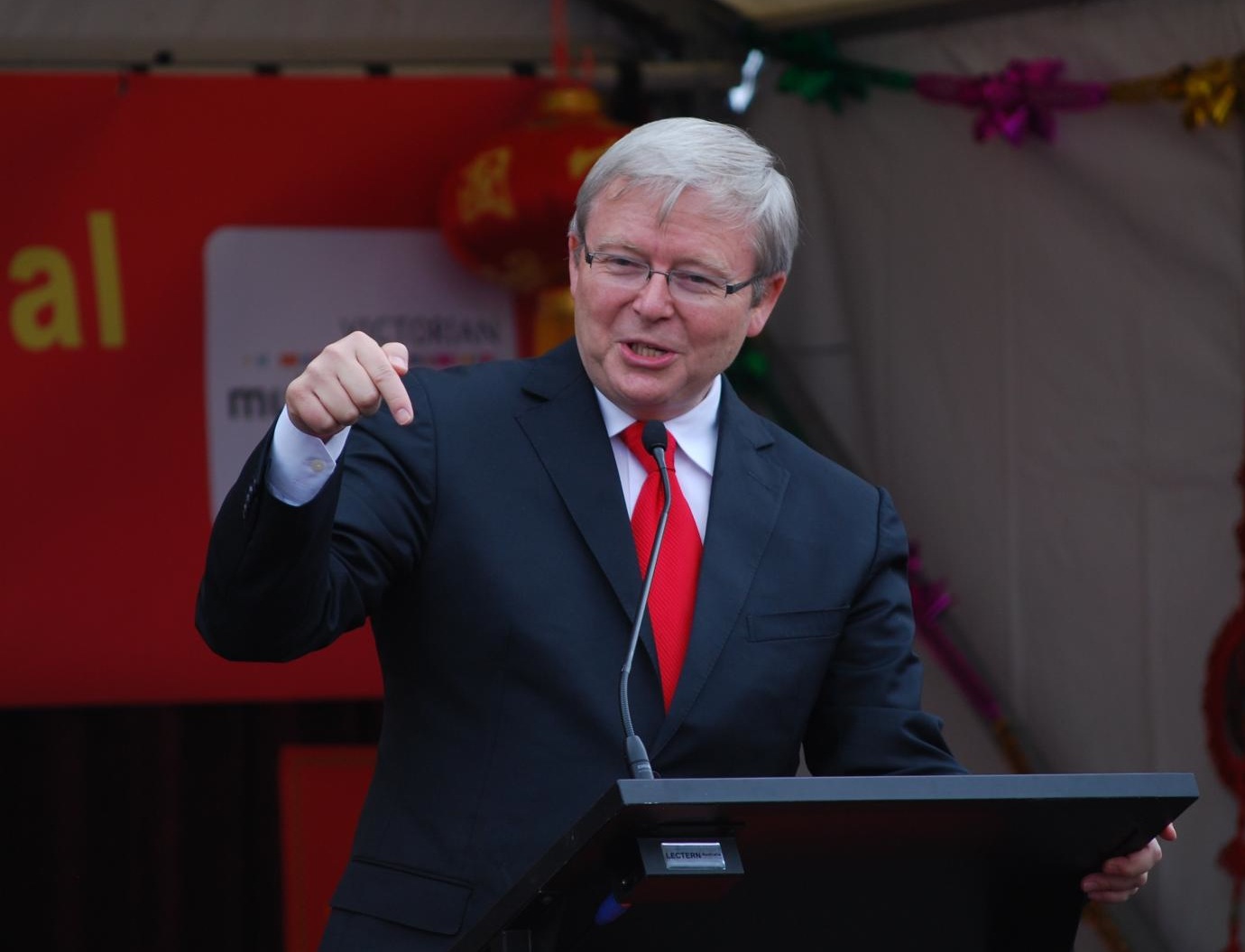
AlphaKevin Rudd is Australia’s new prime minister, again. Now he has to defend that job from an opposition leader who once called climate science “crap.”
In terms of climate policy, Australians face a choice between fairly good and downright evil in an upcoming federal election.
The face of evil belongs to climate skeptic Tony Abbott, leader of the opposition Liberal Party (which, in topsy-turvy Down Under fashion, is in fact conservative).
And the face of relative good is … in some disarray at the moment. Power brokers in the Labor Party, which narrowly holds power in the country, this week stripped the prime ministership away from Julia Gillard and handed it back to former leader Kevin Rudd. They believe this move will help them win the election, which is tentatively scheduled for September.
The stakes are high. Australia is among the world’s worst per-person contributors to climate change. The country is a huge producer of coal, exporting a lot and consuming a good bit itself. And it’s been suffering heavily from climate change in recent years, enduring epic heat, drought, wildfires, and floods.
But lately, the country been trying to mend its ways, and setting a global example in doing so. Over the last six years, under first Rudd and then Gillard, the Labor Party has introduced policies and taxes designed to battle and adapt to climate change. Reports are confirming that the new taxes and policies are doing what they were intended to do: curb power plant carbon emissions and accelerate investment in renewable energy.
But Labor’s been flailing in the polls and weighed down by infighting. Rudd had been agitating for the top job for months, destabilizing the party. Now, after he was sworn in as prime minister on Thursday, Labor’s members of parliament are vying against each other for positions in his new cabinet, instead of focusing on their reelection campaigns.
The conservatives have not hidden their glee at the pre-election upheaval within the governing party:
Australian public now totally disgusted with Labor Party wrecking country with it's sordid intrigues. Now for a quick election.
— Rupert Murdoch (@rupertmurdoch) June 26, 2013
Labor’s move was a desperate one, and it might very well backfire. But many in Australia just couldn’t see Gillard leading her party to another victory.
As a stubborn champion of new taxes on the powerful fossil fuel and mineral sectors, and as a tough-as-steel woman leading a country still plagued by machismo and misogyny (and as an unmarried atheist without any kids, to boot), Australia’s first female prime minister was the target of ruthless and incessant attacks on her character and leadership. She had sandwiches thrown at her by men making the statement that a woman’s place is in the kitchen. Political rallies supported by Abbott were held to “ditch the witch.” Guests at a political fundraiser were served “Julia Gillard Kentucky Fried Quail,” described on the menu as “Small Breasts, Huge Thighs & A Big Red Box.”
Now, with Rudd back in Kirribilli House, pundits are busily analyzing how the new prime minister’s climate policies might differ from the old one’s. He might change rules on how the prices for carbon emissions are set, for example.
Rudd, a nerdy policy wonk, once described climate change as the “great moral, environmental and economic challenge of our age.” He led the party during most of the first of its two consecutive terms in power, introducing climate-friendly policies before he was replaced by Gillard amid similar turmoil prior to the last election.
Gillard, though, had the courage to introduce climate taxes that had made Rudd hesitate (some would say wisely, politically speaking).
But while there are differences between the two leaders in their approach to climate and energy issues, they won’t matter if Labor loses the election. This week’s savage bloodletting was all about trying to avoid that outcome.

David Jackmanson
Tony Abbott, opposition leader and climate denier.
Abbott, for his part, once described the science behind climate change as “crap.” He has since recanted, but, as we explained in April, he has nonetheless pledged to eliminate the new carbon and mining taxes, dismantle a federal department of climate science advisers, and take other steps that would see the country retreat to its unbridled climate-changing ways of decades past.
Rudd now has until August or September to steady the Labor Party and navigate it to political victory (or thereabouts — as prime minister, he has the power to set the election date, which can be no later than Nov. 30). That won’t be easy amidst a political maelstrom of his own creating. But if his party can rediscover some unity, it won’t be impossible.
If Rudd does win, he’ll have a moral obligation to mull the environmental consequences of Australia’s substantial coal exports. But, then, that’s a world-warming beast that no leading Australian politician has shown any willingness to wrangle.



